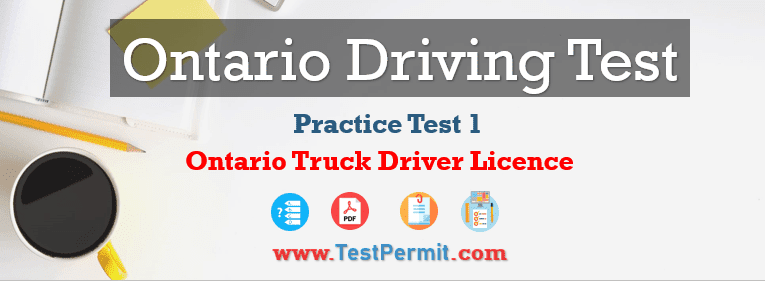Ontario Truck Driver Licence Practice Test 2025 (50 Questions Answers) Try our free AZ Practice Test Ontario Truck Driver’s Licence practice with Rules of the Road and Driving Knowledge Test. There are a total of 50 questions. You can easily test your knowledge. Please refer to the Ontario Highway Traffic Act and regulations, the Dangerous Goods Act and Federal Motor Vehicle Transport Act.
The province has almost 55,000 commercial carriers actively operating on Ontario’s roadways. Even though truck traffic has increased with Ontario’s growing economy, there has been a long-term decline in fatal collisions involving large trucks, thanks to the collective efforts of government, police, industry, safety-minded organizations and conscientious drivers.
Ontario Truck Driver Licence Practice Test 2025
| Test type | AZ Practice Test Ontario 2025 |
| Licence Type | Commercial Truck Driver |
| Class | A and Z |
| Province | Ontario |
| Test type | Sample Practice Test |
| Total Questions | 50 MCQs |
| Topics Covered | Rules of the Road and Driving Knowledge Test |
For more information about driver licensing, visit www.mto.gov.on.ca. See the Official MTO Driver’s Handbook for information on Ontario rules of the road
